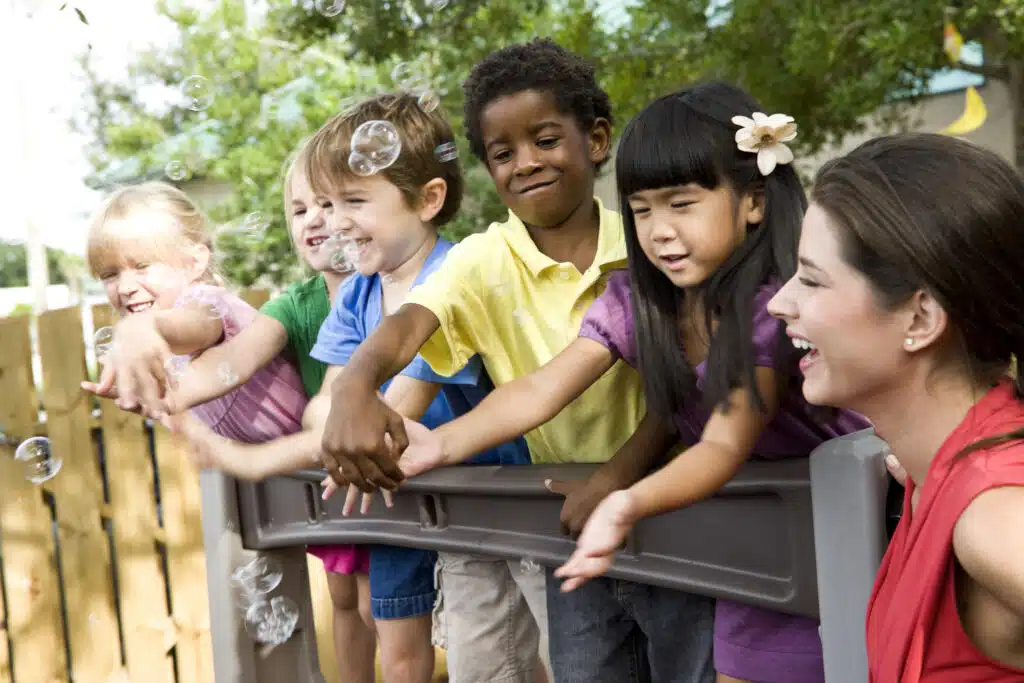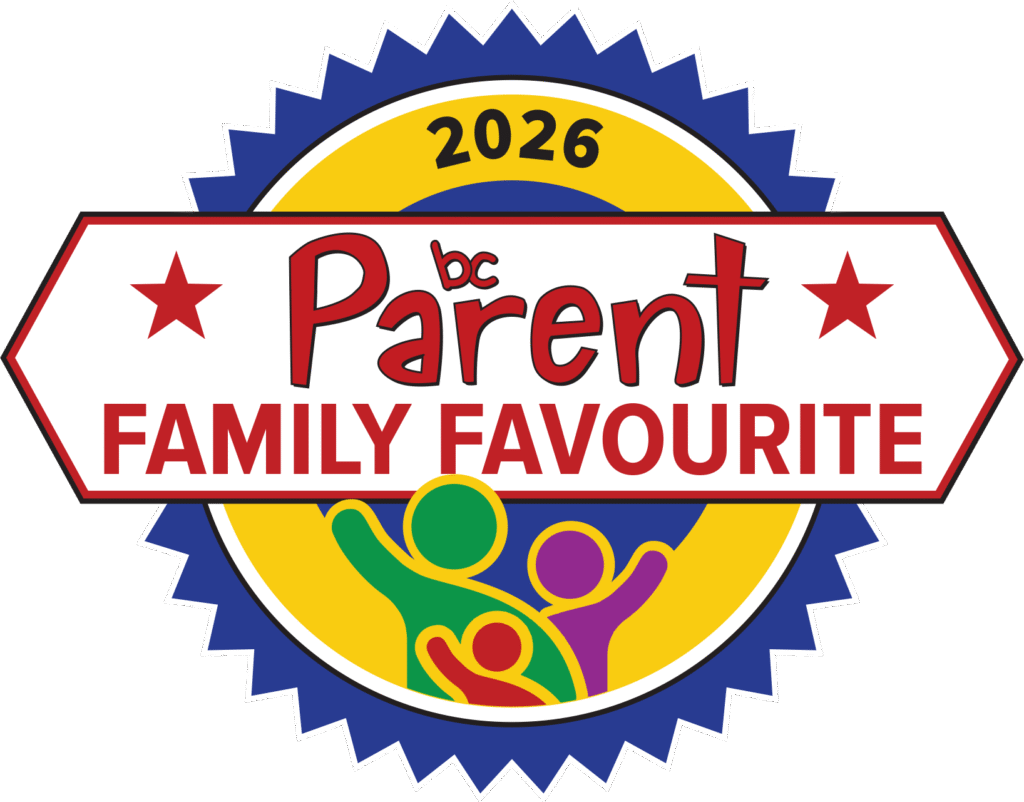The Unstoppable “Reset” Mindset
Reset is for anyone who knows the strain of balancing life on the tightrope of being everything to everyone.


When children argue on the playground and your little one – who is old enough to take a turn on the slide on their own but not old enough to play with the “big kids” – turns to you in tears, it can be hard knowing what to do. It’s not unusual to feel a pang of anxiety wondering if your child will form healthy, lasting friendships.
Preschool and kindergarten years are when children begin to make connections outside of their immediate family, taking small steps towards independence. Gaining skills to boost social confidence such as resolving conflicts and regulating emotions during difficult times happens through these connections. Fostering social emotional learning skills such as social awareness, relationship skills, and self-management not only helps in making and keeping friends, but also provide a basis for better academic success in certain subjects in early elementary school.

In the early years, it’s possible to make friends anywhere from the playground to structured play groups. Social awareness helps your child better read social cues within a given context before a problem escalates.
Due to a host of factors such as family dynamics, birth order, parental modeling, and genetics, some children are naturally socially confident. For others, should you suggest that your child asks another to play may lead to tears and you may even become the brunt of the frustration. When children gain confidence in asking another child to play, in conjunction with social awareness, problems such as tears spewing from a “slide bully” for instance, are an opportunity for your child to turn to another in line and ask to go play something else, somewhere else.
When conflict arises, be it on the slide or elsewhere, once your child has calmed down take the opportunity to ask open-ended questions that foster social awareness. Furthermore, consider noticing the instances where your child is playing alone in a group context or not seizing opportunities to make new connections. Is there a recurring pattern? In what social circumstances does your child feel most confident? Developing social awareness is a complex skill that takes time, opportunity, and plenty of support so be patient and consider seeking personal or professional advice.

Another core social-emotional learning skill essential for lasting friendships is a subset of skills related to building healthy relationships. An integral part of relationship skills is knowing how to resolve conflict.
Arguments among children in the early years are frequent but fortunately are of short duration. While minimizing arguments among preschoolers and kindergarteners is a noteworthy goal, it’s also important to keep in mind the benefits your child derives from having enough opportunities for social interaction to practice the art of arguing. Specifically, when parents don’t intervene, arguments become an opportunity for children to learn to negotiate power. Long term, frequent arguments with peers can reduce the likelihood of developing healthy relationships. Therefore, it’s good to be aware of some common reasons why arguments occur. Consider the following scenario you’ve likely overheard.

We’ve all seen children playing a game when the mood suddenly shifts. “I’m bored!” This isn’t an issue when all players’ desires are aligned with either remaining in the game or choosing a different activity. However, when the feeling isn’t mutual by all players, an argument may erupt. Learning negotiating skills to ask to play something different, which includes using a kind tone and words won’t guarantee that peers will agree, but it goes a long way towards showing another that they are an equally valued participant in the game.
However, if your child is constantly switching activities this can feel overwhelming to the other child and ultimately contribute to loss of friendship. Thus, it’s important to recognize if you need professional help to teach your child how to interact with peers such that mutual interest in the game is sustained.
Start by asking your child to imagine playing with a friend and suddenly wanting to play something different. Ask your child what some good words are to use to indicate they don’t want to play something anymore that won’t be offensive. Spend one minute role playing by acting out this scenario before each play date.

Self-management involves internally regulating one’s thoughts, emotions, and behaviors to manage stress, impulses, and motivation. Issues that frequently spark arguments among young children include asking for a turn to play, such as on the playground slide, and sharing.
Taking Turns and Sharing
Turn-taking and sharing require temperamentally based self-regulation (or effortful control) for building healthy relationships. At the core of self-regulation is regulating emotions so that one’s response is appropriate to the situation or stressor. Around the time children enter kindergarten, blood begins to flow to the prefrontal cortex allowing children to regulate emotions better.
Additionally, other core brain skills (executive functions) such as cognitive flexibility, working memory (including attention), planning, and problem-solving are being refined and are involved in developing self-management. As such, remember to be patient with young children as they are only beginning to develop these same skills we take for granted as adults!

Foster sharing skills by asking your child to swap their favorite teddy bear for one hour with a friend on their next play date. If your child is willing to participate, prepare a few days in advance and remind them a few times the day of their scheduled play date. Furthermore, model the same relationship skills yourself by asking the drop-off parent to participate.
Children who develop social-emotional learning skills such as social awareness, relationship skills, and self-management are likely to have higher social confidence. Building these skills is a parent-child team effort. Your child will undoubtedly let you know what feels most natural. It’s always a relief knowing that you took steps to help your child now so they can more easily integrate into increasingly larger networks over time. But before you reach your destination to launch, it takes a lot of trial and error. Fortunately, this trial and error has been accounted for in programs that build social-emotional skills for preschoolers and kindergarteners so that you don’t have to do it alone.
Dr. Desfossés holds a PhD from a Top 10 World Ranked Family and Human Development Department in Social Emotional Learning. Be among the first globally to join Dr. Desfosses in an online class to help your child build these skills at West Coast Centre for Learning, an award-winning organization! Course details are available here: www.wccl.ca/peers-for-preschoolers
Reset is for anyone who knows the strain of balancing life on the tightrope of being everything to everyone.

The nominations have been tallied, and the voting begins on January 10th! Look at the Family Favourites you nominated! Family Favourite Nominees 2026 Congratulations to all the nominees!

Do you remember how delightful Christmas holiday was when you were little? If the countdown to Christmas is stressing you out, it just means you’ve grown up! Read these tips to reclaim the magic of the holiday season.
